Eco-Heroes [EcoCupid on a Bike | EP 2]
Sweet Sustainable Pineapple Ripens After 6 Years of Hardship
05/06/2023
by huy
6 years ago, Hương abandoned his career in the big city to return to his hometown hoping to build Vietnam’s first sustainable pineapple farming community.
After a month of staying at Thái Bình Dương University, Nha Trang, Khánh Hòa, it’s time for me to continue my journey. It took me half a day to cycle over Cả mountain pass to get to Phú Yên province. I always have good impressions of this place whenever I visit here as I am assured of its amazing food and experiences. But now let’s look for a potential environmental project here!
(Feature Photo: huy)
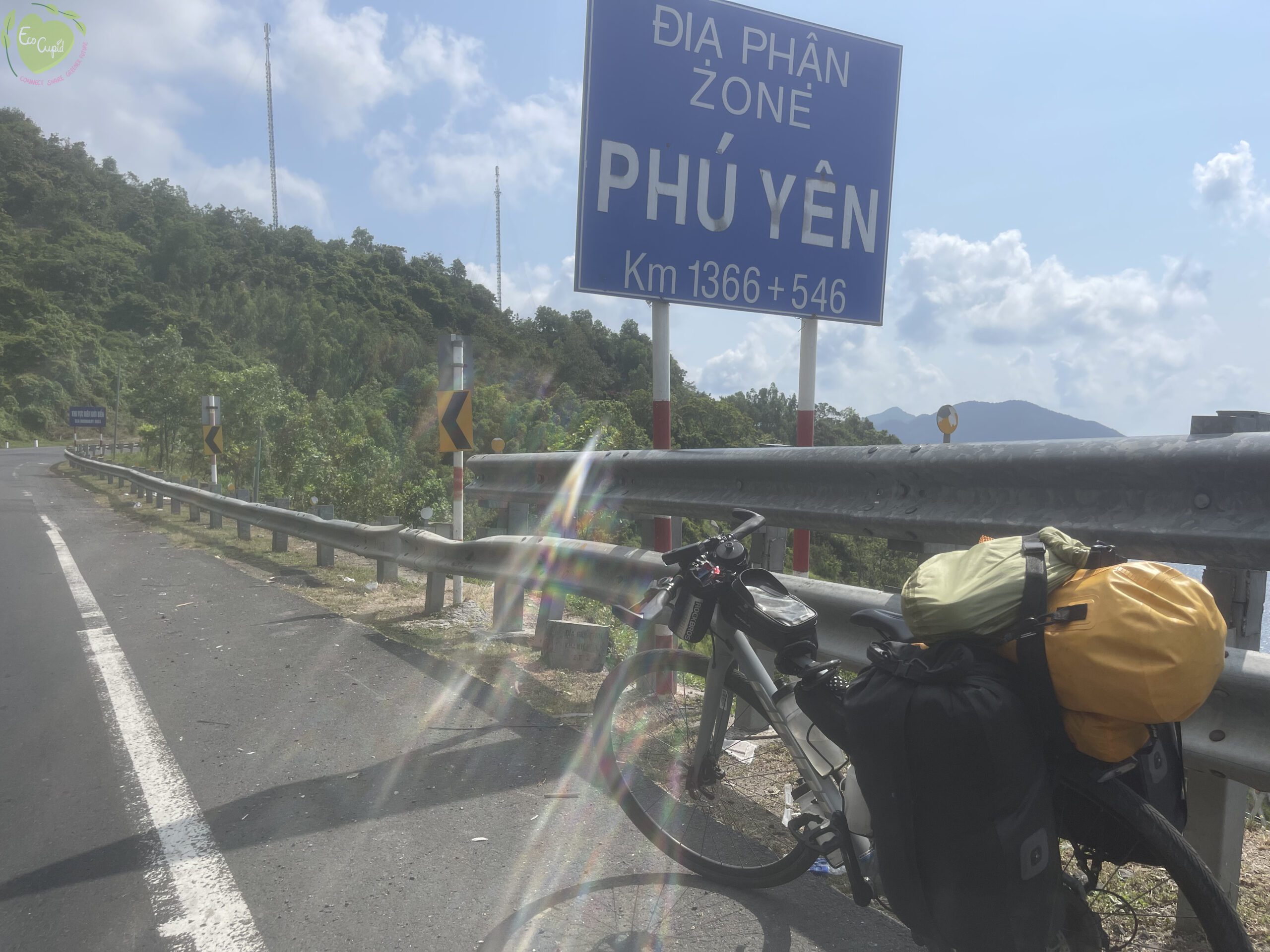
Just before I got to Tuy Hoà, the capital city of Phú Yên province, I was notified by my friend, who happens to be a local, about an amazing project in the mountains to the west of the city. Hearing that, I immediately turned and headed for a detour through small roads cutting across endless paddy fields. I absolutely adore this kind of heartwarming scenery.
I arrived at a place called Đồng Din EcoHill Farm and there was no way I could ride my bike up the slope to where the project is located. Luckily, I was contacted by the project owner, Mr Hương, who gave me a ride to the place on his modified motorcycle.
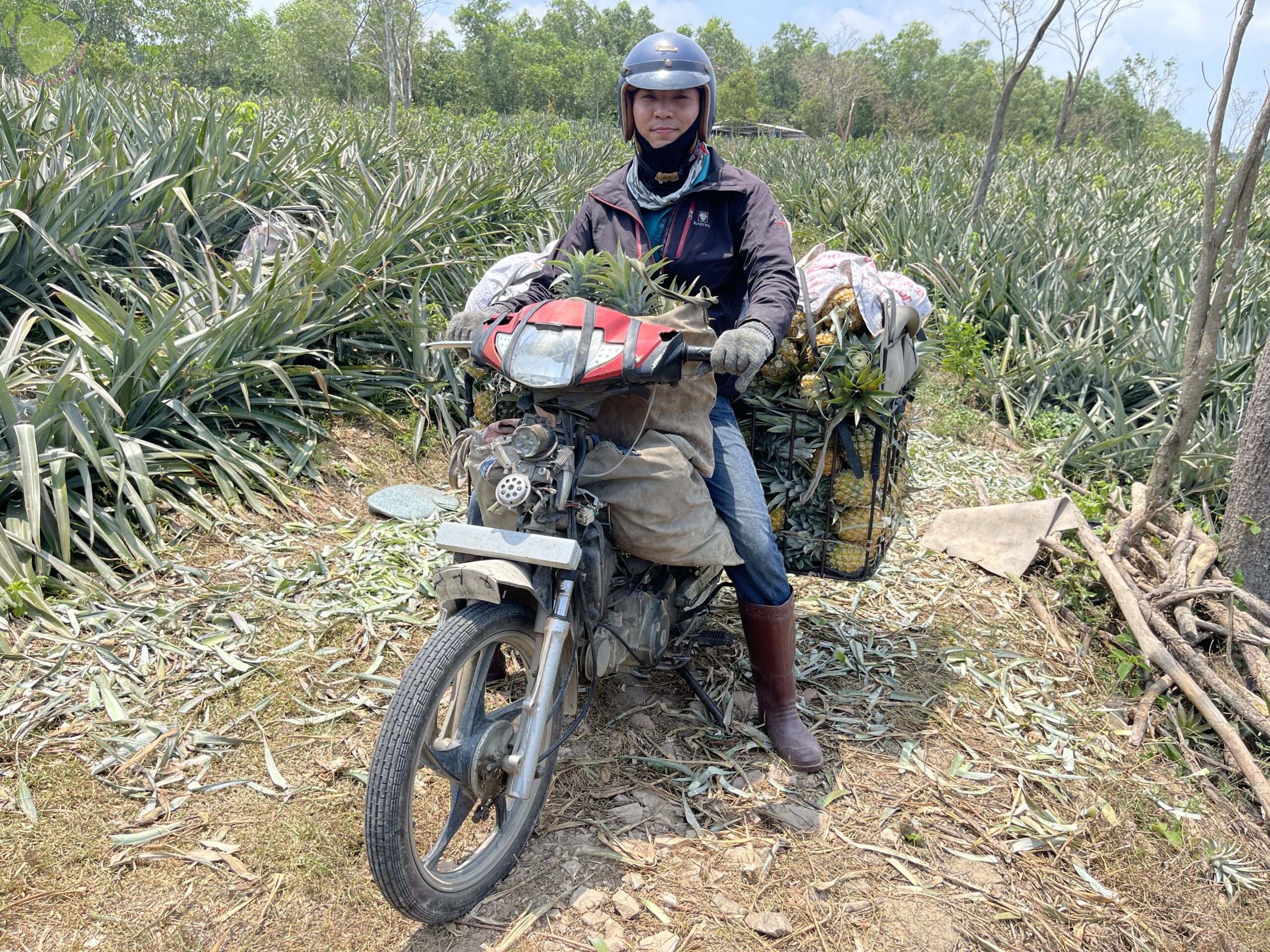
Đồng Din is a pineapple farm that strives for sustainable agriculture. My first impression of this place was its breathtaking view of the faraway Tuy Hoà city and the vast paddy fields. For the next few days, Hương showed me how he has been upholding an incredibly challenging sustainable approach for this pineapple farm for six years straight.
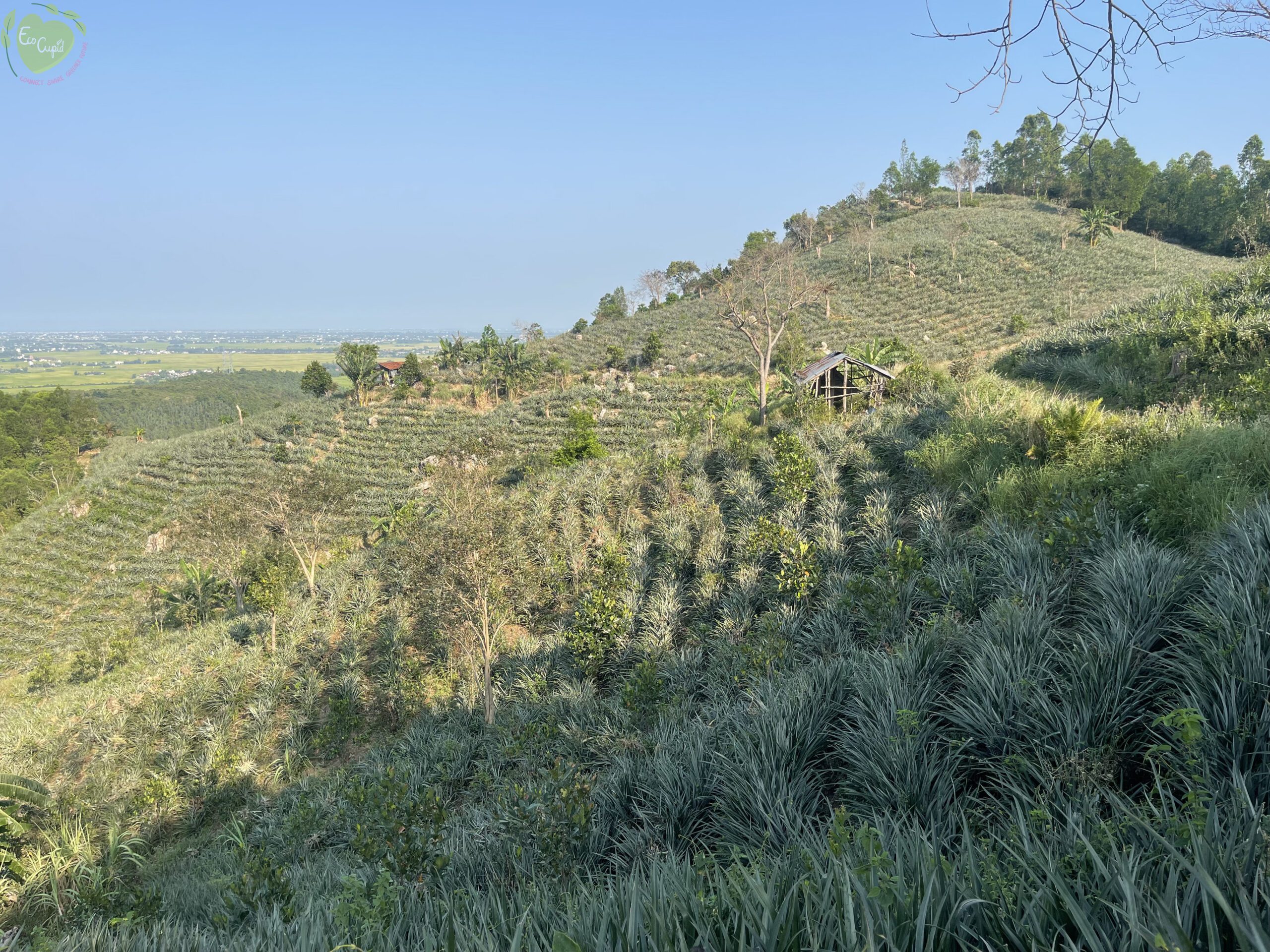
Sweet taste of success after 6 years
Hương is a friendly man, I was impressed by his remarkable passion for sustainable farming. He said right after he finished his undergraduate program, despite the fact that there were many opportunities waiting for him in big cities, he decided that he must do something for his hometown. He then dropped everything to return to the Đồng Din mountains of Phú Yên with the dream of realizing Việt Nam’s first sustainable mountainous pineapple farming community. He told me that his family doesn’t have a tradition of agriculture, his major in university wasn’t about agriculture either, so for 6 years, he tried and failed to learn pineapple farming. It was only recently that Đồng Din EcoHill Farm started seeing success in making good yields of pineapple, but the delay doesn’t upset him one bit in making his dream come true.
According to Hương, Đồng Din is a unique place for agriculture, due to the unusually high concentration of potassium in the soil, the pineapples grown here will have an especially sweet taste as well as an alluring aroma. In Vietnam, one of the names for pineapples is “thơm”, which literally translates into sweet aroma, so the smell of pineapples is crucial for the Vietnamese.
In fact, pineapples have been planted in the Đồng Din area for a long time now, but due to the use of chemicals in conventional agriculture practices, the nature of the surrounding area is gradually degrading. Grass and native trees can no longer grow in conventional pineapple farms. The local water streams have also become polluted. Chemically-degraded soil becomes more and more unproductive so the local farmers have to use even more chemicals every year. And if this practice continues, the lands will become so fruitless that people will have to abandon them. When Hương bought this land 6 years ago, it was also chemically degraded. Since then, Hương has been doing everything he can to restore this land to set an example of sustainable agriculture that can be followed by the locals to establish harmony between human activities and nature in the area.
Sustainable farming is the only way out
The next morning started with Hương guiding me on how to practice sustainable agriculture. Taking care of the pineapples is a highly tedious job. We have to wake up before sunrise to make preparations so that all the work on the farm will be finished at noon when the burning sun of Phú Yên gets too hot to work under.
To him, the very key to sustainable agriculture is the soil. If the soil is naturally fertilized enough, there will be no need for artificial fertilizer. Normally, farmers will use cow manure and the like to achieve this, but due to the difficult sloped terrain of Đồng Din, the only way for Hương to achieve soil fertile enough for sustainable farming is to reuse the biomass of his own pineapples. After the harvest, the remains of the pineapple plants will be manually chopped into pieces and placed on the surrounding ground so that they return to the soil as they decompose.
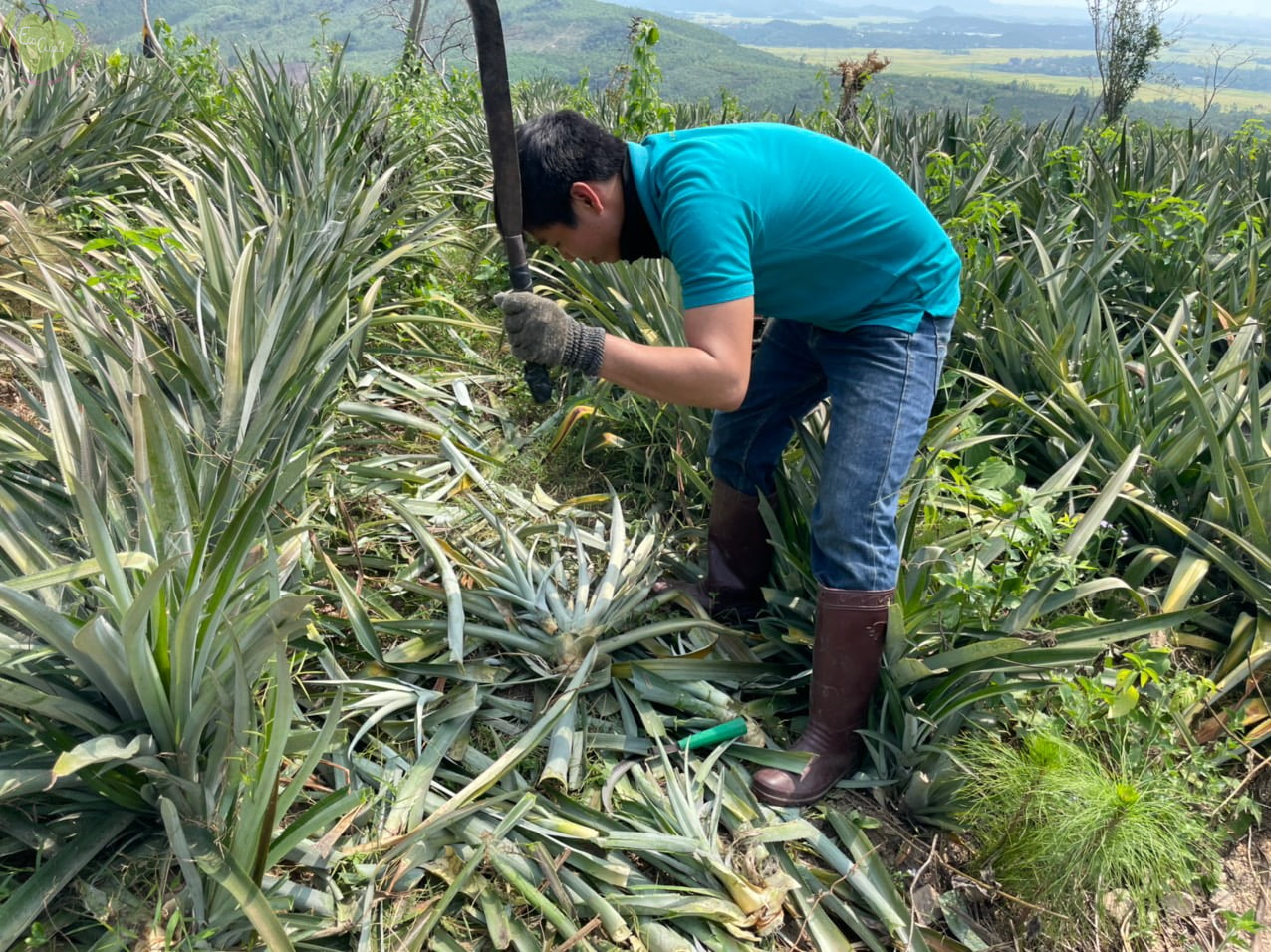
This practice not only increases the fertility of the soil but also helps to maintain soil moisture so that a water supply system won’t be needed. The pineapple biomass shields the topsoil from drying out. Hương claimed that with this practice, he has reduced the cost of running his farm by 30%.
Speaking of shields, field residues after a pineapple harvest can provide natural materials for Hương to cover his pineapple crops from the searing summer sun. Despite being a sun-loving plant, the pineapple can get sunscald under intense heat. This happens very often in the burning summer of Tuy Hoà. In fact, I spent some mornings helping him cover the pineapples with decomposing biomass. It is tedious work indeed, but when we don’t use artificial fertilizer, the pineapples will need additional help in enduring the environment.
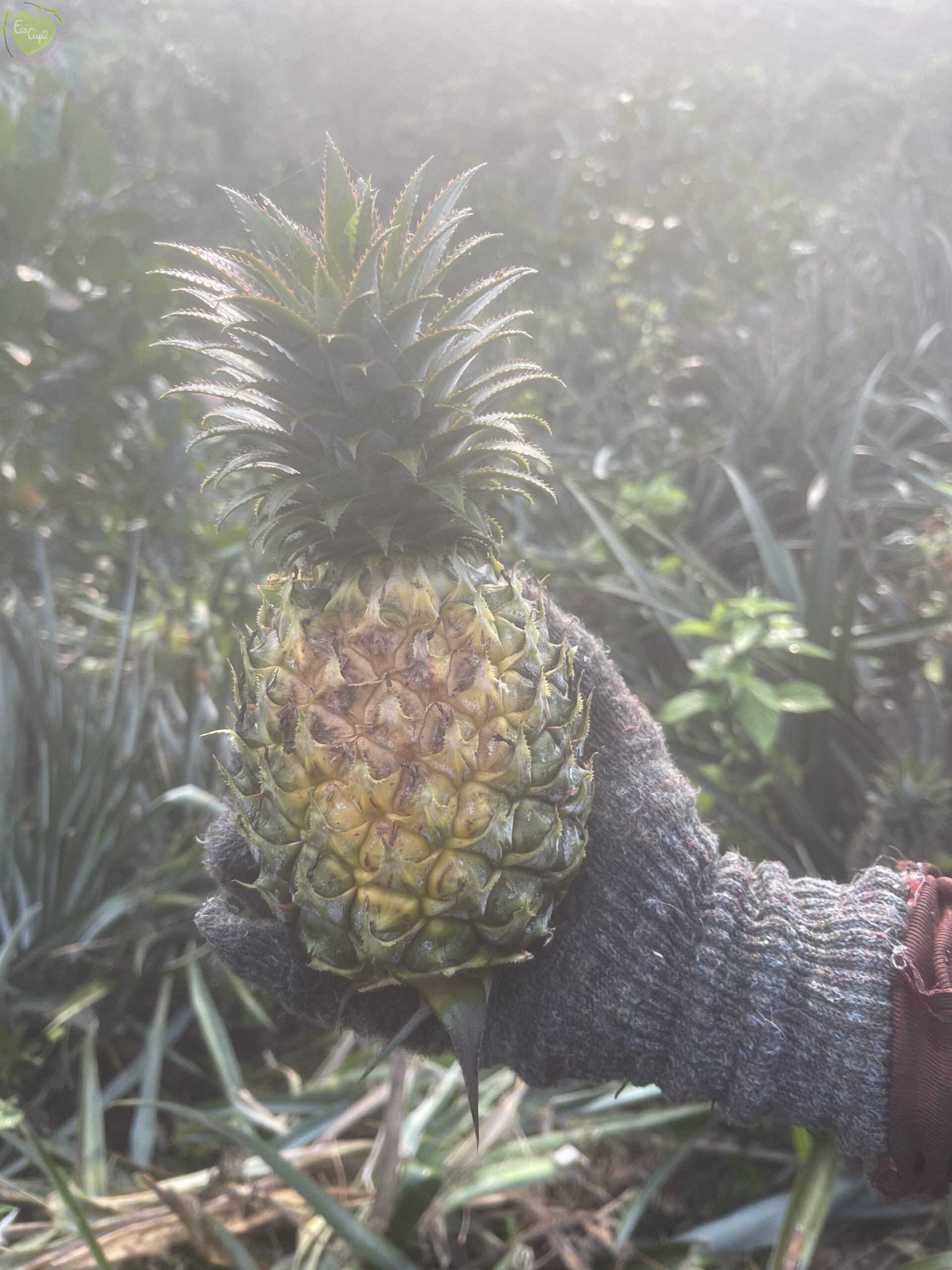
Using biomass isn’t the only method that Hương is applying to make his farm sustainable. He also uses both native fruit trees and native wood trees to intercrop with his pineapples. This will create additional shades and biomass for the pineapples, as well as yield timber and fruits to financially support Hương to continue with his ambition.

However, despite all of Hương’s efforts to grow pineapples in a truly green way, El Niño is approaching so he has to do even more to protect his organic pineapples. Unlike other pineapples which use artificial fertilizer, Hương’s organic pineapples are highly susceptible to the environment. He fears that they will not be able to withstand the upcoming prolonged drought. Refusing to yield to the tempting chemicals, the only way for him to make it through this challenge is to build an irrigation system as soon as possible.
Hương devised his brilliant “50m2” project in which, instead of growing pineapples and selling them the conventional way, he convinced customers to invest in 50m2 of pineapple farming land first and in 3 months, he will ship all the pineapples grown from the land to his customers. This way, he will have enough money upfront to build his irrigation system and save his pineapples.
Funding from the “50m2” project will not only be used for building a watering system but also to build and maintain a water station for the other local farmers to use during the hot season.
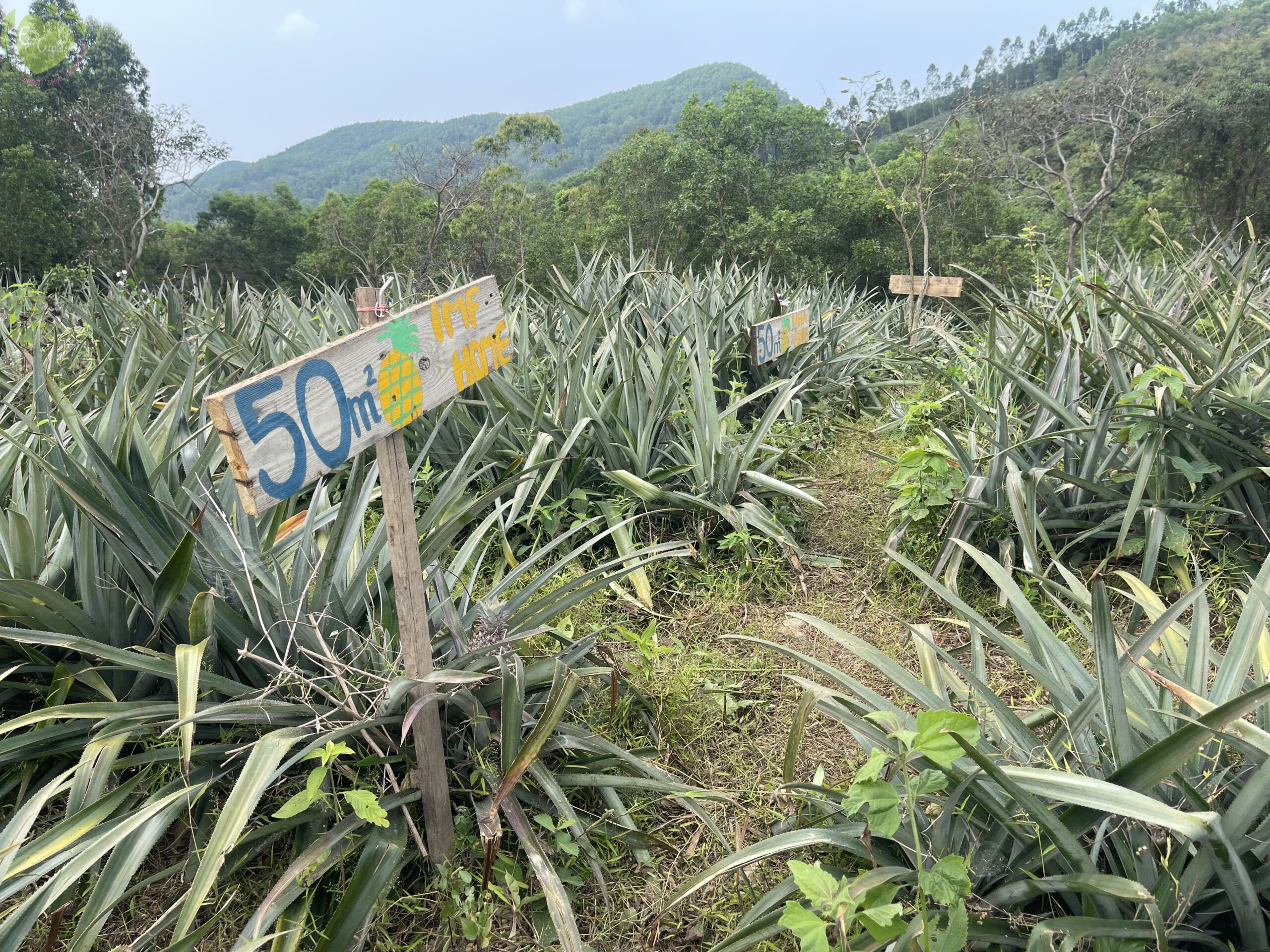
Saving Đồng Din’s farms for the community
Hương has maintained his dedication to building the Đồng Din community ever since he started his farm 6 years ago. His greatest ambition is to make 600 hectares of pineapple farming land for the 500 households in the whole Đồng Din area using only sustainable agriculture methods. He said this is the only way his community can survive long into the future without devastating the lands and abandoning them.
To him, people only have room to care for the environment when obtaining a livelihood doesn’t take all of their time and effort. Another challenge for the local farmers is the dangerous uphill road that they travel daily to carry hundreds of kilograms of pineapples just on a motorcycle. After a long time requesting funds to upgrade the road without success, Hương decided that he would use his own finance to support this project so that the farmers will have a safer way to travel.
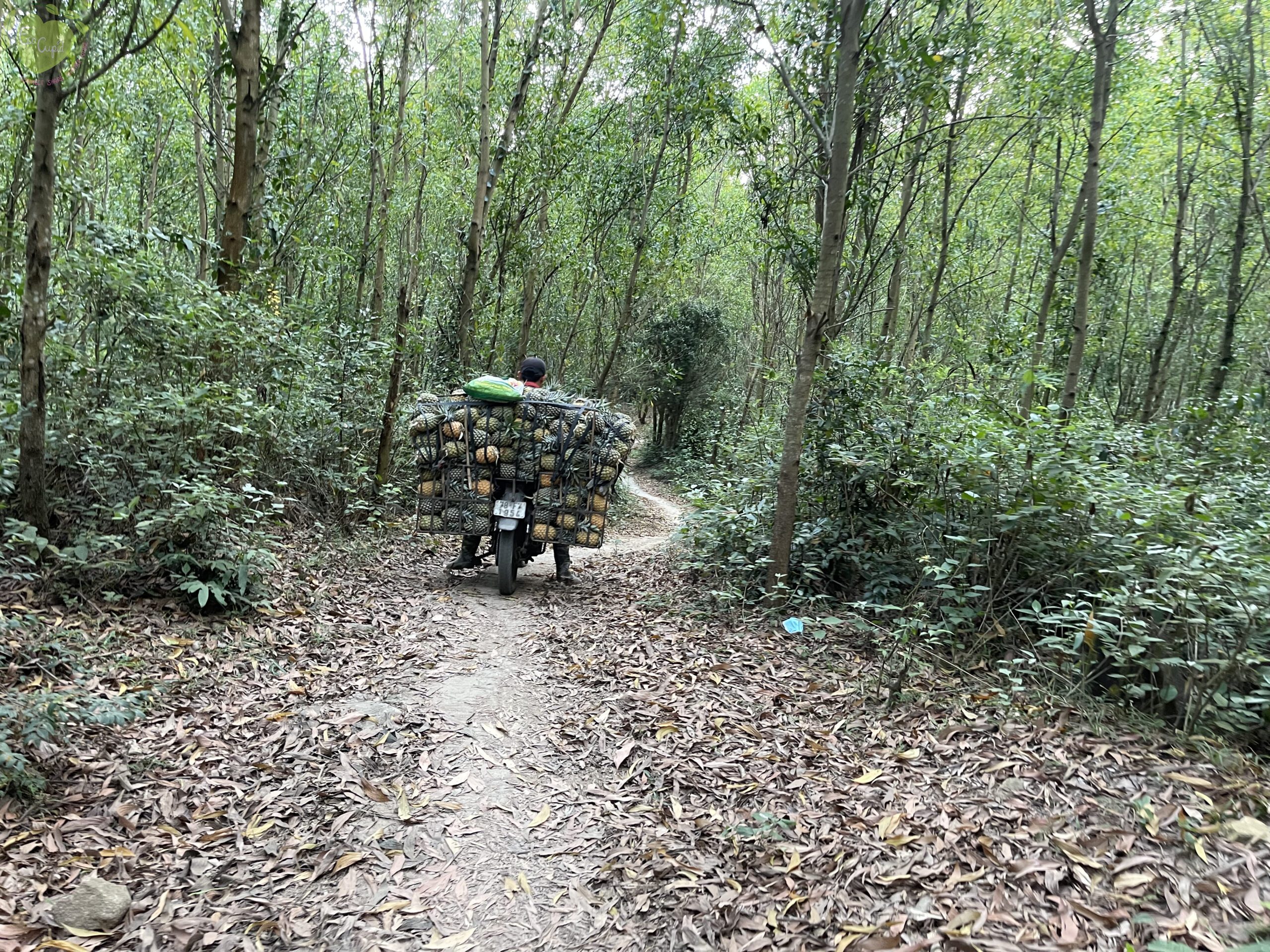

After my week of volunteering at Đồng Din EcoHill Farm, I learned about the method of sustainable agriculture, the process of community building, and the burning passion of a young man to do something for his hometown. I will surely remember this place, not only for the farm but also for the great friendships that I made here.
If you want to learn more about Hương’s method of sustainable pineapple farming in the mountainous region of Đồng Din, stay tuned to EcoCupid because we will feature this amazing project in our next documentary series.
Stay tuned with huy for more environmental projects with EcoCupid On A Bike!
(Edited by Bryan Yong)
Our featured Eco-Hero
Đồng Din EcoHill Farm is one man’s mission to create his sustainable pineapple farming community. Based in Phú Thạnh Hamlet, Hòa Quang Nam Village, Phú Hòa District, Phú Yên Province of Vietnam, Nguyễn Văn Hương focuses on restoring chemically-degraded land through sustainable farming while educating his neighbouring farmer community to do the same. You can reach out to them at https://www.facebook.com/dongdinecohill
This article was produced with support from YSEALI SEEDS for the Future grant 2023.

huy
huy, from Vietnam, is Ecocupid’s web developer. He is currently riding his bicycle all around Southeast Asia doing crazy stuff, learning about various cultures and discovering emerging environmental projects for EcoCupid’s platform.
